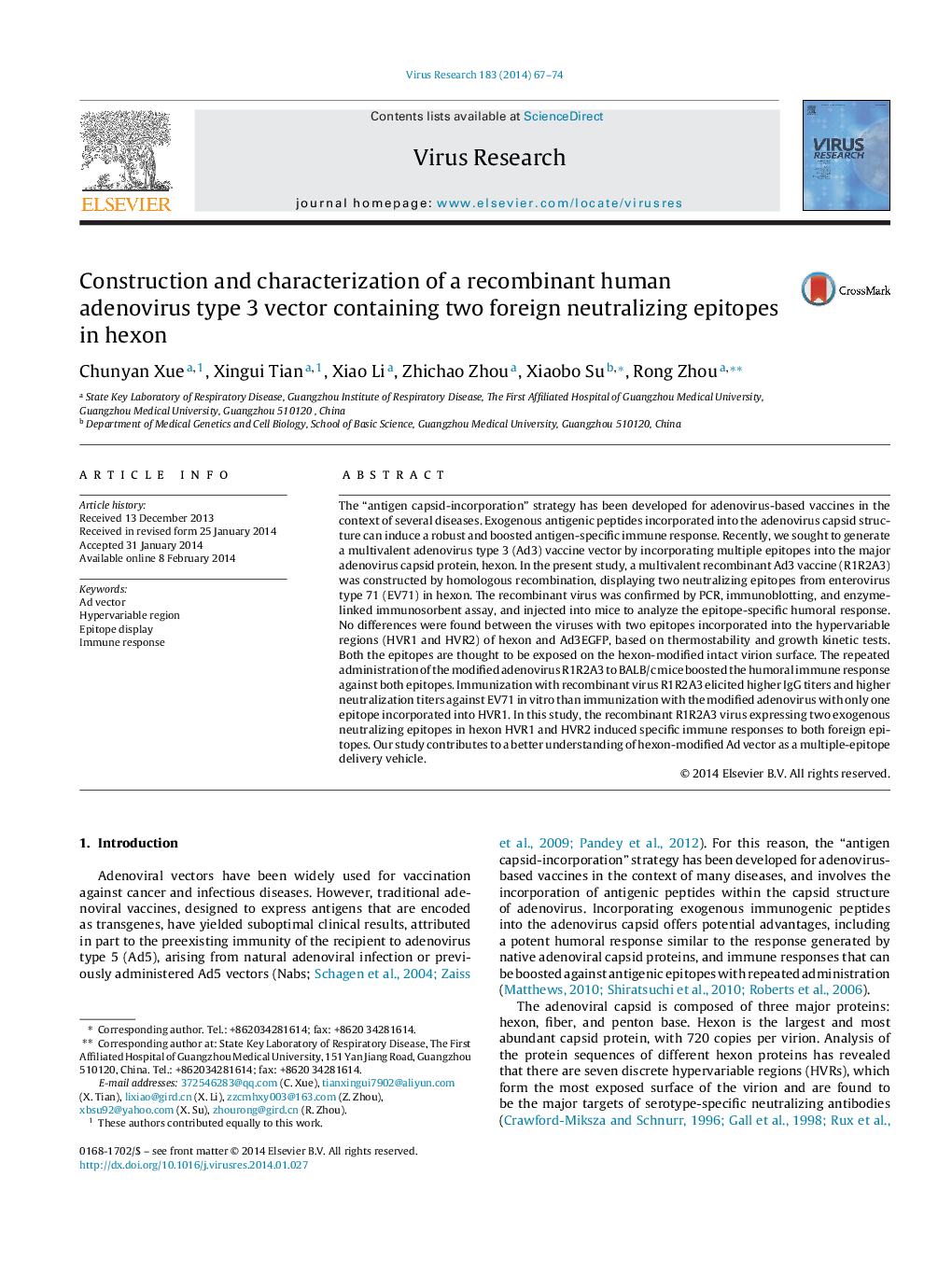| Article ID | Journal | Published Year | Pages | File Type |
|---|---|---|---|---|
| 3428481 | Virus Research | 2014 | 8 Pages |
•We generated R1R2A3 with two epitopes incorporated into hexon of Ad3 vector.•Both SP70 within HVR1 and SP55 within HVR2 presented on the virions surface.•R1R2A3 elicited both epitopes-specific antibody responses.•R1R2A3 elicited neutralizing antibodies against EV71 infection in vitro.•The first report method generating a multivalent vaccine based on Ad3 vector.
The “antigen capsid-incorporation” strategy has been developed for adenovirus-based vaccines in the context of several diseases. Exogenous antigenic peptides incorporated into the adenovirus capsid structure can induce a robust and boosted antigen-specific immune response. Recently, we sought to generate a multivalent adenovirus type 3 (Ad3) vaccine vector by incorporating multiple epitopes into the major adenovirus capsid protein, hexon. In the present study, a multivalent recombinant Ad3 vaccine (R1R2A3) was constructed by homologous recombination, displaying two neutralizing epitopes from enterovirus type 71 (EV71) in hexon. The recombinant virus was confirmed by PCR, immunoblotting, and enzyme-linked immunosorbent assay, and injected into mice to analyze the epitope-specific humoral response. No differences were found between the viruses with two epitopes incorporated into the hypervariable regions (HVR1 and HVR2) of hexon and Ad3EGFP, based on thermostability and growth kinetic tests. Both the epitopes are thought to be exposed on the hexon-modified intact virion surface. The repeated administration of the modified adenovirus R1R2A3 to BALB/c mice boosted the humoral immune response against both epitopes. Immunization with recombinant virus R1R2A3 elicited higher IgG titers and higher neutralization titers against EV71 in vitro than immunization with the modified adenovirus with only one epitope incorporated into HVR1. In this study, the recombinant R1R2A3 virus expressing two exogenous neutralizing epitopes in hexon HVR1 and HVR2 induced specific immune responses to both foreign epitopes. Our study contributes to a better understanding of hexon-modified Ad vector as a multiple-epitope delivery vehicle.
